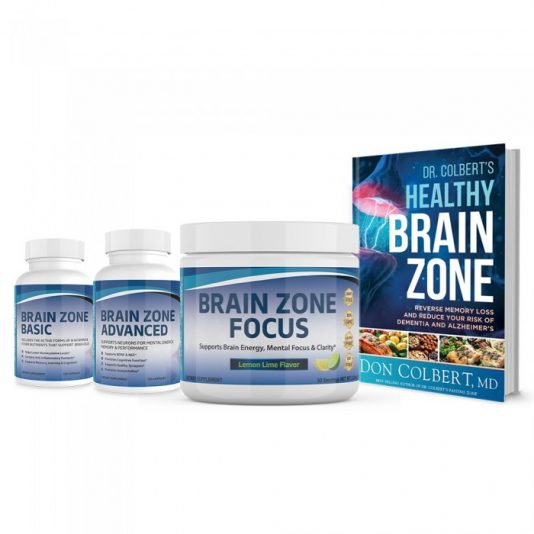Did you know that serum testosterone levels decline approximately 1-1.6% annually after the age of 30 in men (1, 2)? Did you also know that declining testosterone may affect heart health, brain health, and blood sugars?
While some men experience no negative symptoms and are able to maintain healthy levels overall, others deal with many symptoms in mood, sex drive, energy, and more. Alarmingly, the symptoms can go beyond how a men feels. Declining testosterone levels can be a real health concern.
Father’s Day is a wonderful time to put the spotlight on the health of the men in our lives. Let’s learn more about declining testosterone and how we can better support mens’ health.
Why Men Experience Declining Testosterone
First of all, a decline of testosterone is completely natural as a man ages. As stated above, the typical decline is 1-1.6% every year after age 30. In fact, by age 60, most men experience testosterone levels low enough to be diagnosed as hypogonadism in a younger man (3).
But there’s something else going on in modern times. Levels of physical work, time outside, diets, medications, and lifestyles have changed significantly over the last 3-4 generations. Factors that may negatively affect male hormones include:
- Use of certain medications
- Injury to or infection in the testes
- Chronic health issues, including abnormal blood sugars, weight gain, autoimmune conditions, and kidney and liver malfunction
- Disorders that affect the hormones, such as pituitary tumors or high prolactin levels
- Increased obesity (6)
- Indoor, sedentary lifestyles
- Lack of physical activity
- Environmental pollutants including pesticides
- Chemical exposure including BPA’s, chemicals in coolants, and antibacterial agents that mimic estrogens (7)Genetic predisposition
- Advanced age – as life expectancy, increases, testosterone is lower with each year
Many of these modern-day issues may partially explain the decline in hormone levels in many men. In fact, the current rate of diagnosable hormone concerns in 45-year-old males is about 40% and climbing. The rate of declining testosterone levels has increased by 170% since 2012 in men over 60 years, and the issue of generational testosterone issues is being seen across the world in the United States, the Netherlands, and Australia, among other locations worldwide (4, 5, 6).
Signs of Declining Tesosterone
There are many symptoms of declining testosterone, but they are often difficult to distinguish since many of them are similar and associated with normal aging. Signs that testosterone is declining include (7):
- Mood changes and decreased libido
- Diminished erectile quality, particularly at night
- Reduced cognitive function
- Decreased muscle strength
- Decreased body hair and skin changes
- Fatigue
- Decreased bone mass and bone mineral density
- An increase in abdominal fat mass
Declining testosterone can also a health concern. It is associated with higher mortality and chronic conditions such as depressed moods, heart issues, metabolism problems, high blood sugars, and more. Unfortunately, treating conditions with medication, and even the diseases themselves, can also cause low testosterone…a vicious cycle (8).
Importance of Testosterone
Testosterone is very important in both men and women. It’s the primary male sex hormone, and it is produced by the testicles in men. The hypothalamus and pituitary gland control its production, including how much and when. Testosterone is responsible for male sexual characteristic development.
Moreover, testosterone levels have a direct affect on a man’s sex drive, fat distribution, bone mass, muscle size, strength, sperm count and development of mature sperm, and red blood cell production.
Women also produce testosterone, but in smaller amounts than men. In females, testosterone also contributes to sex drive, bone density, and muscle strength, and having too little or too much can be an issue (9).
Testosterone is a vital component of wholebody health and well-being.
Declining Testosterone, Heart Health, and Brain Health
Beyond the function mentioned above, declining levels of testosterone can also affect heart health, blood sugars, and brain health (10). Here’s how:
- Cardiovascular Health: In men, declining testosterone may increase men’s risk of developing coronary artery disease (CAD), metabolic syndrome, and type 2 diabetes. Men with lower levels and existing heart health issues experience poorer prognosis and increased mortality. In fact, studies have reported a reduced heart health risk when testosterone levels are higher (11).
- Blood Sugar Health: Interestingly, levels of both total and free testosterone are significantly lower in men with altered blood sugars (12). In fact, many studies (animal, epidemiological, and human trials) have found a strong association between declining testosterone and signs of unhealthy blood sugars (13). Testosterone levels in men seem to affect glucose in the blood and unhealthy body weight.
- Brain Function: Many animal and cellular models have demonstrated a variety of neuroprotective effects of testosterone. These neuroprotective effects include healthy cognitive performance and synaptic plasticity (14), improved synapse density (15), healthy cerebral blood flow and glucose metabolism in specific brain regions (16), and more (17). Inversely, in both rodents and humans, testosterone depletion may reduce cognitive performance while improvements have been seen with treatment (18).
Testosterone Levels play a huge role in mens’ health!
All-Natural Supplement for Declining Testosterone: Testosterone Zone
Thankfully, there is a Keto Zone® formulation that support mens’ health and testosterone levels: Keto Zone® Testosterone Zone.
Testosterone Zone’s primary active ingredient is Testofen. It is a potent aid for men’s health.
Testofen is a specialized fenugreek seed extract. It has been found to support men’s health, encourage healthy testosterone levels when testosterone is low, and even promote health and sexual function in healthy aging males.
In fact, in one landmark study, researchers found Testofen safe and effective in reducing low testosterone symptoms and supporting testosterone levels (19). Other studies also support Testofen’s efficacy (20).
Keto Zone® Testosterone Zone is All-Natural and Specially Formulated for Men’s Health
Just as Keto Zone® Hormone Zone supports women’s hormones for balanced levels, Testosterone Zone is mens’ answer for healthy testosterone levels – support mens’ health this Father’s Day!
Dr. Colbert’s Keto Zone® Testosterone Zone is formulated with all-natural, potent ingredients in addition to Testofen. Together, they support men’s overall health and hormone levels.
Bottom Line
Let’s put a spotlight on the men in our life and support their health this Father’s Day. Declining testosterone can be a real issue for many men. It affects many health aspects from mood to sex drive to heart and brain health.
Thankfully, Dr. Colbert has a new answer with Keto Zone® Testosterone Zone. It’s safe, effective, and an all-natural formulation designed to support men’s health and testosterone balance.




















